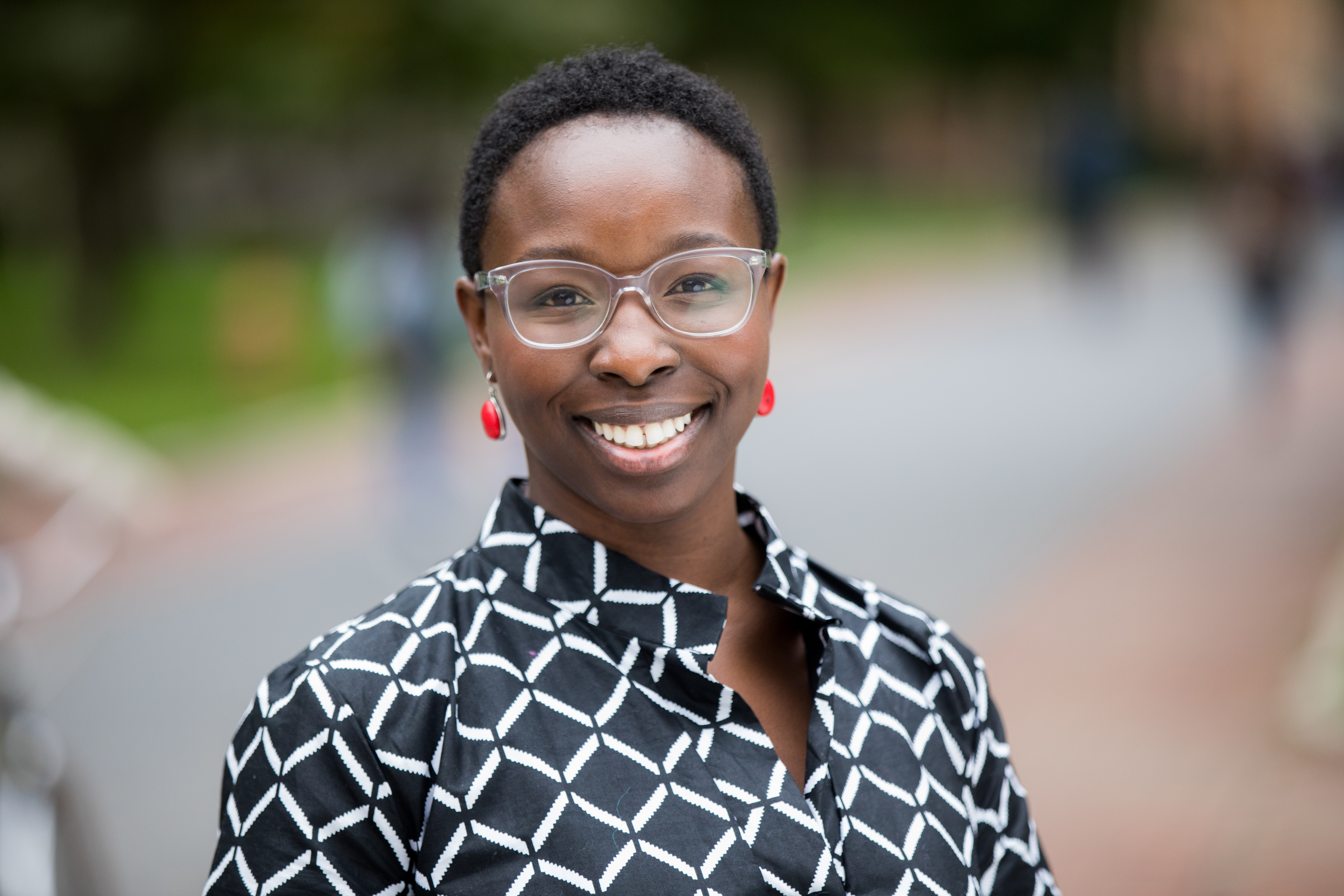Modern Dating as a Black Woman
Sarah Adeyinka-Skold, GR’20, on digital dating and its impact on gender and racial inequality.
It’s not easy to be a Black woman searching for a romantic partner, says Sarah Adeyinka-Skold, a doctoral candidate in the Department of Sociology. Even though today’s romance landscape has changed dramatically, with the search for love dominated by digital dating sites and applications like OKCupid, Match, and Tinder, racism remains embedded in modern U.S. dating culture.
As a woman of Nigerian descent, Adeyinka-Skold’s interest in romance, particularly through the lens of gender and race, is personal. In high school, she assumed she’d go off to college and meet her husband. Yet at Princeton University, she watched as white friends dated regularly, paired off, and, after graduation, oftentimes got married. That didn’t happen for her or the majority of a subset of her friend group: Black females. That realization launched a research trajectory.
“As a sociologist who is trained to notice the world around them, I realized quickly that a lot of my Black friends weren't dating in college,” says Adeyinka-Skold. “I wanted to know why.”
Adeyinka-Skold’s dissertation, titled "Dating in the Digital Age: Sex, Love, and Inequality," explores how relationship formation plays out in the digital space as a lens to understand racial and gender inequality in the U.S. For her dissertation, she interviewed 111 women who self-identified as White, Latina, Black, or Asian. Her findings are still emerging, but she’s uncovered that embedded and structural racism and a belief in unconstrained agency in American culture makes it harder for Black women to date.
For starters, place matters. Dating technology is generally place-based. Take Tinder. On the dating app, an individual views the profiles of others within their preferred number of miles. Swiping right implies interest in another person’s profile. Adeyinka-Skold’s research finds that women, regardless of race, felt that the dating culture of a place impacted their romantic partner search. Using dating apps in New York City, for example, versus Lubbock, Texas felt drastically different.
“I heard from women that different places had a different set of dating norms and expectations. For example, in a more conservative area where there was a greater expectation for women to stay home and raise children after marriage, women felt their desire for more egalitarian relationships was hindered. With the limitless choices that digital dating provides, other places tended to stress more casual dating,” she explained. “Some women felt like, ‘I don't necessarily adhere to those norms and as a result, my search feels more challenging’.”
For Black women, the ongoing segregation of the places in which romance occurs can pose increased barriers.
“Residential segregation is still a huge problem in America,” Adeyinka-Skold says. “Not everyone is going to New York City, but we have these new, up and coming urban professional centers. If you are a Black woman who's going into those places, but only white people are living there, that might pose an issue for you as you search for romantic partners.”
Part of the reason why residential segregation can have this kind of impact is because research shows that men who are not Black may be less interested in dating Black women. A 2014 study from OKCupid found that men who were not Black were less likely to start conversations with Black women. Black men, on the other hand, were equally likely to start conversations with women of every race.
“Results like these use quantitative data to show that Black women are less likely to be contacted in the dating market. My research is showing the same results qualitatively but goes a step further and shows how Black women experience this exclusion” says Adeyinka-Skold. “Although Black men may show romantic interest in Black women, I also found that Black women are the only race of women who experience exclusion from both Black and non-Black men.”
Why? Adeyinka-Skold learned from Black women that men don’t want to date them because they're considered ‘emasculating, angry, too strong, or too independent.’
Adeyinka-Skold explains, “Basically, both Black and non-Black men use the stereotypes or tropes that are popular in our society to justify why they don't date Black women.”
Those stereotypes and tropes, alongside structural barriers like residential segregation, can impact Black women struggles to meet a mate. And, says Adeyinka-Skold, until Americans recognize these challenges, little is going to change.
“As long as we have a society that has historical amnesia and doesn't believe that the ways in which we structured society four hundred years ago still has an impact on today, Black women are going to continue to have an issue in the dating market,” she says.
Even so, Sarah Adeyinka-Skold, who met her husband (who is white) at church, remains hopeful. She finds optimism in the moments when “people with race, class, and gender privilege in the U.S.—like my husband—call out others who have that same privilege but are using it to demean people's humanity and demean people's status in America.”
When asked what she wants people to take away from her research, Adeyinka-Skold replied that she hopes people better understand that the ways in which American society is structured has implications and consequences for people's class, race, gender, sexuality, status, and for being seen as fully human. She added, “This lie or myth that it's all about you, the individual, and your agency, simply isn’t true. Structures matter. The ways that governments make laws to marginalize or give power matters for people's life chances. It matters for their outcomes. It matters for love.”



